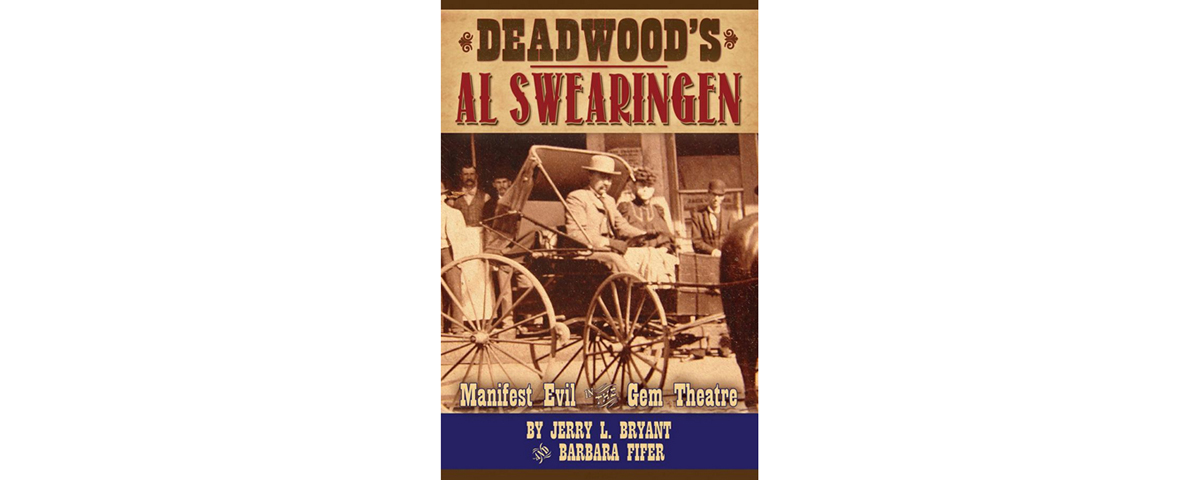Deadwood’s Al Swearingen: Manifest Evil in the Gem Theatre, by Jerry L. Bryant and Barbara Fifer, Farcountry Press, Helena, Mont., 2018, $14.95
Anyone who has watched an episode of the HBO series Deadwood will recall the proprietor and manager of the Gem Theatre in that Dakota Territory boom town as an evil &%$#&&#* (insert here any of the rain of vulgarities that show’s actors used with abandon). At least, that was the case on-screen. Well, according to the authors of this quick read, the real-life Ellis Albert “Al” Swearingen was none too nice, either. (Jerry Bryant, who moved to Deadwood in 1999 and contributed to the 2004–06 TV series, completed the research for this book; when he died in 2015, Montana writer-editor Barbara Fifer completed the project.) Among other unflattering facts they reveal are that Swearingen was the one who benefited most from “interactions” at the Gem; was physically aggressive with first wife Nellie, employees and customers; was an opium dealer; was unwilling to repay debts; was often sued; and was in the habit of recruiting young girls, as a September 1884 article in The Black Hills Daily Times put it, “for the purpose of launching innocence and virtue upon a life of shame.”
No doubt Swearingen was a seedy frontier businessman (along with its variety acts the Gem offered booze, gambling and whores), but for a man of his place and times he was not especially evil or for that matter atypical. Despite his many sins, for example, Al apparently never killed anyone. In other words, under the harsh light of Bryant’s research Swearingen does not come off as a standout demon in the hell that was Deadwood, let alone anywhere near as bad as depicted in the HBO show. (The saloonkeeper’s good guy twin, who also intrigued Bryant, is the subject of the last chapter, “L.A. Swearingen, the Straight Arrow, 1845–1910.”) Al died in 1904 in a Denver suburb from a blunt-force trauma to the back of his head—a murder victim, concluded Bryant. Sadly, solid citizen Lemuel Abraham Swearingen fared little better than his brother, surviving gunshot wounds that same year only to die six years later in their hometown of Oskaloosa, Iowa, from a brain hemorrhage suffered during a fight. “Both the Swearingen twins, the evil one and the good one,” the book concludes, “were dead by violence, six years apart, after leading very different lives.” Many details about their lives will never be known, but one thing seems clear—HBO will likely never roll out a series named Oskaloosa.
—Editor





